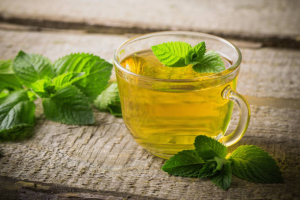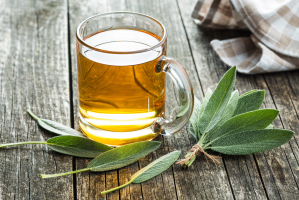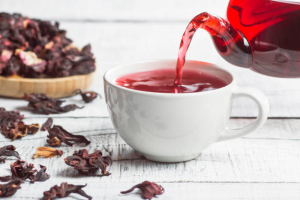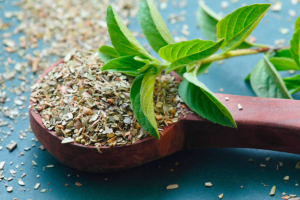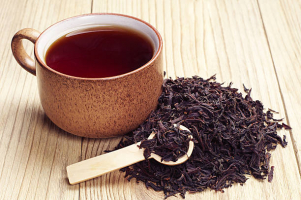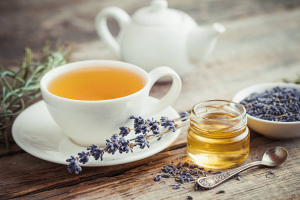Top 8 Health Benefits of Drinking Green Tea with Lemon
You may relax with a cup of green tea and lemon juice any time of the day. It is flavorful, tasty, and simple to make. It is also very nutritious and linked to ... read more...a variety of possible health advantages, according to a study. The best health advantages of green tea with lemon are listed here. Read on for more information.
-
A healthy weight reduction diet can benefit greatly from the inclusion of green tea with lemon. Actually, some researchers have indicated that green tea may help with weight reduction and increase fat burning. Drinking green tea with greater concentrations of EGCG for at least 12 weeks was associated with reductions in body weight and body fat, according to a study of 15 research. Taking green tea extract for 12 weeks, according to one study involving 115 women, also resulted in appreciable drops in body weight, body mass index, and abdominal fat.
Although additional human studies need to be conducted, several studies have suggested that lemons can potentially help people lose weight. According to a study conducted on animals, mice treated with citrus flavonoids had fewer fat cells. In mice given a high-fat diet, the citrus flavonoids also enhanced metabolism. A 2008 research on animals indicated that giving mice on a high-fat diet lemon polyphenols helped keep them from gaining weight and storing fat.

Promote weight loss 
Promote weight loss -
It's interesting to note that some study shows green tea may aid with blood sugar regulation and type 2 diabetes prevention. One research found a connection between consuming tea and a reduced risk of type 2 diabetes and complications from diabetes. Regular tea consumption may also lower inflammation and improve the body's use of insulin. The hormone insulin is responsible for transferring sugar from the circulation to the cells.
A 16-week trial of green tea extract in 92 individuals with type 2 diabetes also showed a reduction in insulin resistance. This might enable improved blood sugar management. Researchers need to conduct an additional study on green tea and diabetes because other studies have produced contradictory findings.

Protects against diabetes 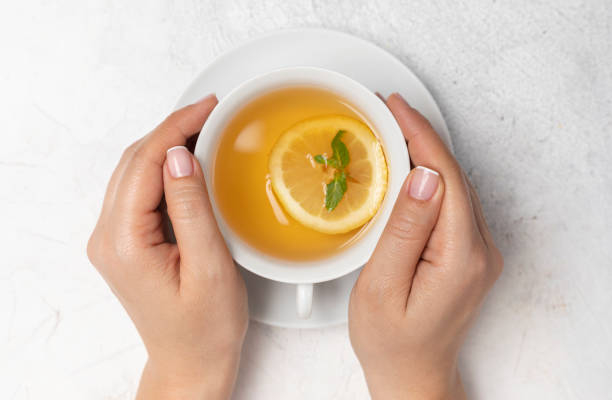
Protects against diabetes -
Both green tea and lemons have been linked to a number of advantages for heart health, according to research. In fact, according to one research, citrus flavonoids, like those in lemons, may reduce inflammation, enhance blood vessel function, and promote normal cholesterol levels. Another study showed that persons who regularly ate lemons experienced lower blood pressure, particularly when they exercised regularly.
In a similar vein, a review of nine research revealed that frequent green tea drinkers had reduced rates of heart disease, heart attacks, and stroke than non-drinkers. Additionally, a current analysis of 24 research discovered that consuming green tea may help decrease high systolic and diastolic blood pressure, both of which are risk factors for heart disease.

May enhance heart health 
May enhance heart health -
Although further human studies are required, some evidence indicates that green tea plus lemon may have a number of potential advantages for brain health. For instance, a study of eight research indicated that consuming green tea may lower the risk of dementia and cognitive decline in some trials.
Another study discovered that regular use of green tea might enhance the metabolism of certain proteins linked to the onset of Alzheimer's disease. Certain molecules in citrus fruits may have anti-inflammatory properties, safeguard brain health, and prevent the formation of plaque in the brain, which might worsen Alzheimer's disease, according to several test-tube and animal studies.
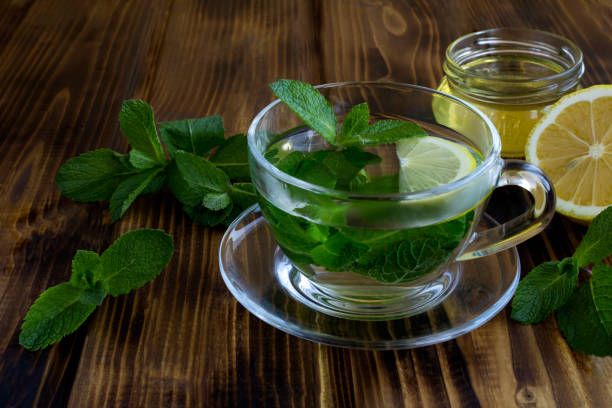
Supports brain health 
Supports brain health -
Vitamin C, a water-soluble micronutrient with potent antioxidant effects, is abundant in lemons. By reducing inflammation and improving immune cell function, vitamin C is essential for the immune system. Increasing your vitamin C consumption may also aid in the treatment and prevention of several other respiratory and systemic illnesses.
Additionally, it has been shown in certain animal studies that specific components of green tea, such as EGCG, may enhance immune function and defend against autoimmune diseases like multiple sclerosis. Lemons and green tea both contain a lot of antioxidants, which support a strong immune system.

May boost immunity 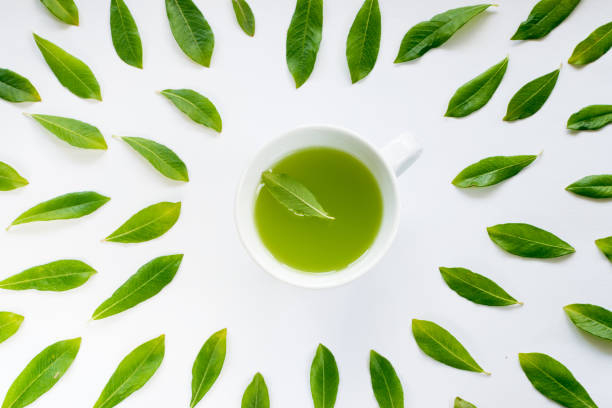
May boost immunity -
Hard mineral deposits known as kidney stones can develop in the kidneys and result in symptoms including discomfort, nausea, and frequent urination. To help prevent kidney stones from developing, try drinking green tea with lemon. In fact, a significant study discovered that consuming green tea was associated with a decreased incidence of kidney stones, particularly in males.
Lemons contain citric acid, which increases urine volume and binds to calcium oxalate to avoid kidney stones. This stops the crystallization process that produces kidney stones. One study found that drinking 4 ounces (118 mL) of lemon juice a day might help to alleviate kidney stones.
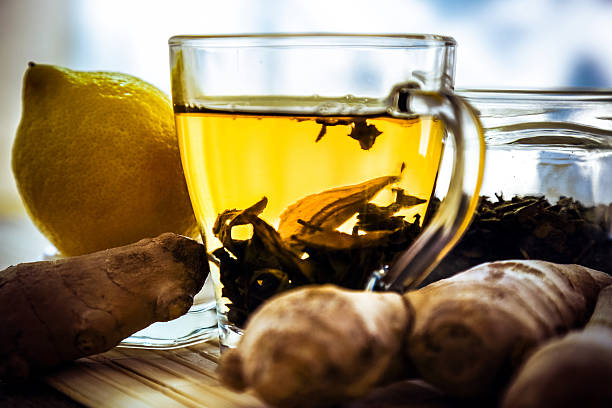
May help prevent kidney stones 
May help prevent kidney stones -
Lemons and green tea may both have potent anti-cancer qualities. According to research conducted in test tubes, some substances obtained from lemons may be able to stop the growth and spread of cancer cells. Numerous malignancies, including lung, stomach, esophageal, and breast cancers, may be at a decreased risk if you consume more citrus fruits, according to certain research. Additionally, studies have connected green tea to a lower risk of cancer. According to research, green tea may particularly help ward against bladder, breast, colorectal, and prostate cancer cells.
A fantastic approach to remain hydrated is to sip green tea with lemon. Almost every facet of health requires enough hydration. It is particularly important for maintaining healthy skin, body weight, brain, digestive system, and kidneys. Regular hydration may even aid in the prevention of kidney stones, migraines, and constipation, among other ailments.

May help protect against cancer and keep you hydrated 
May help protect against cancer and keep you hydrated -
Caffeine, a stimulant of the central nervous system that individuals frequently utilize to boost their energy levels, may be found naturally in green tea. According to studies, caffeine can not only combat exhaustion but also increase alertness and enhance cognitive and physical functioning. Additionally, research has suggested that caffeine may boost endurance and athletic performance. For people who are sensitive to the effects of excessive quantities of caffeine, green tea with lemon may be an excellent choice because it contains less caffeine than coffee or energy drinks.
Antioxidants, which aid in preventing inflammation and oxidative cell damage, are present in high concentrations in both green tea and lemons. Antioxidants include epigallocatechin gallate (EGCG), quercetin, chlorogenic acid, and theogallin are particularly abundant in green tea. The antioxidants ascorbic acid, hesperidin, naringin, and ferulic acid are all abundant in lemons. Antioxidants, according to research, may offer protection against chronic diseases including heart disease, diabetes, cancer, and obesity as well as play a critical role in both health and illness.

Increase energy levels and rich in antioxidants 
Increase energy levels and rich in antioxidants












